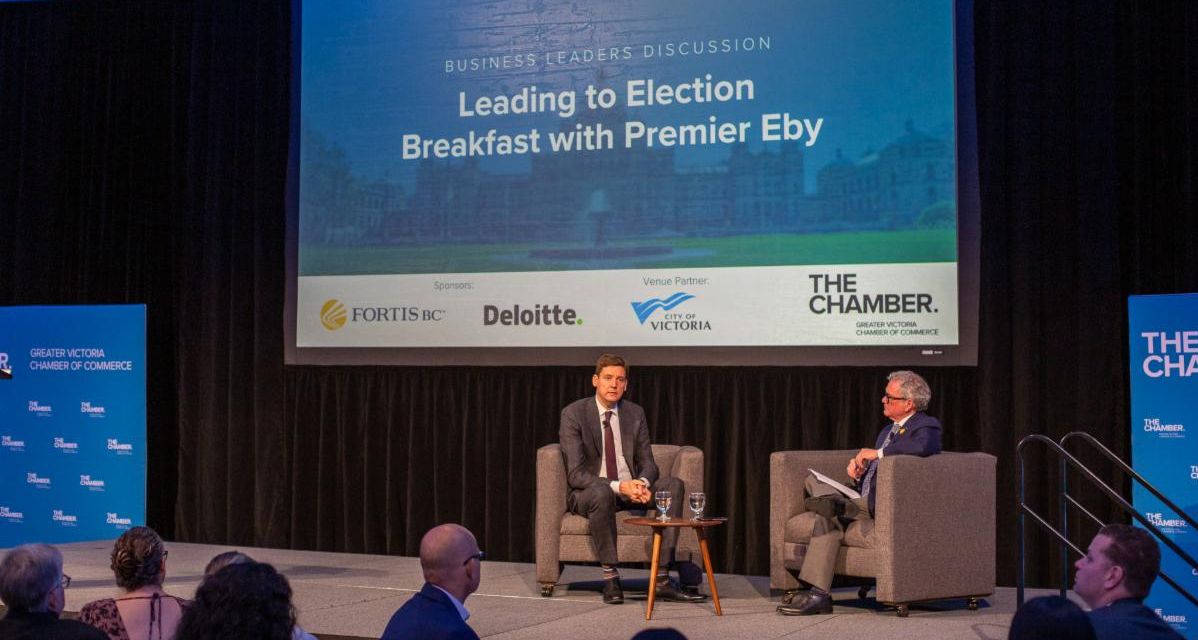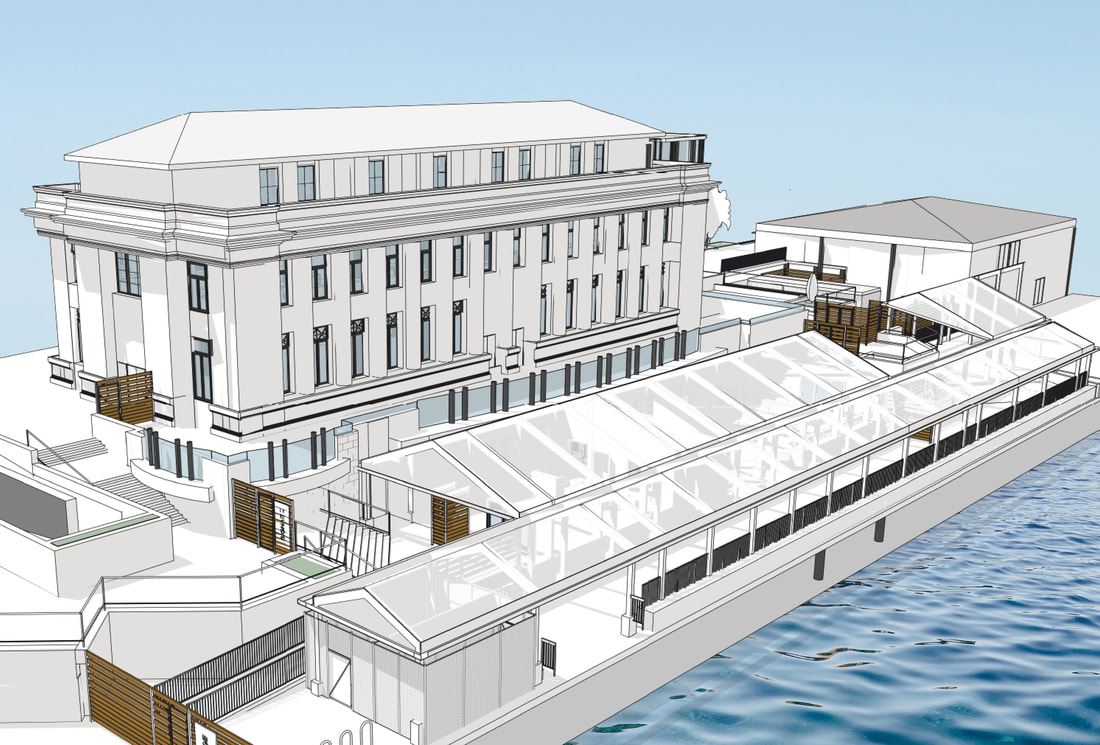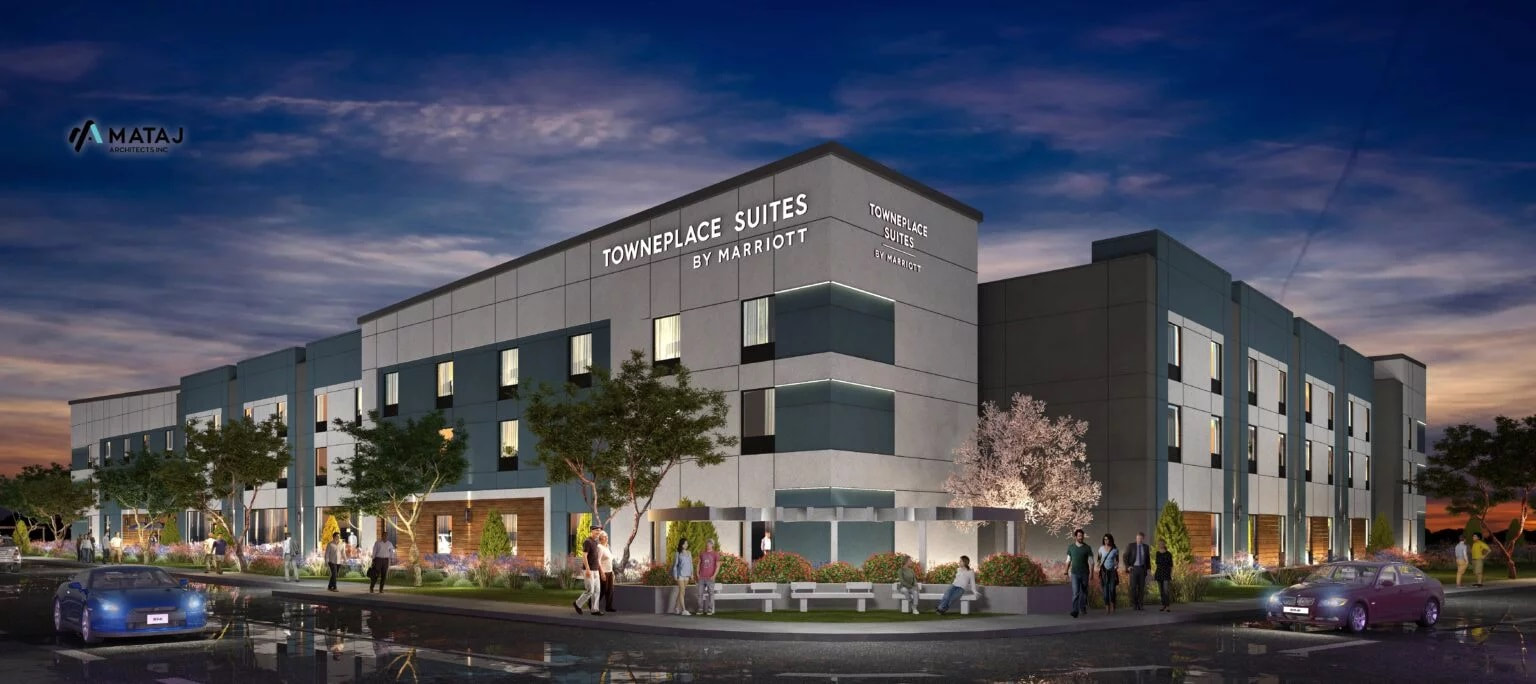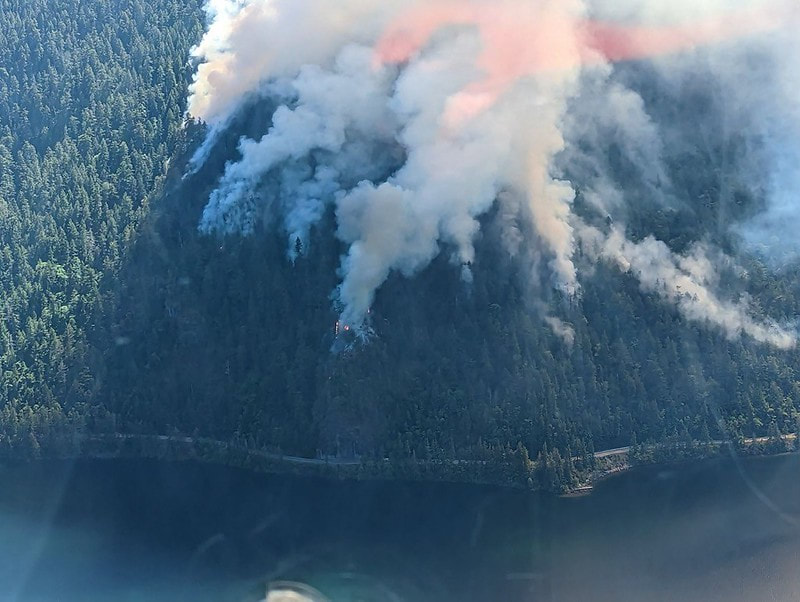|
Work is getting underway on the redevelopment of Belleville Terminal, with Phase 1 Wharf Modifications starting at the Steamship Building’s water lot.
A barge with a crane derrick is on site, and work will take place from 7am to 5pm, Monday to Friday, and potentially weekends depending on scheduling. However, no work will occur over long-weekends, and should be completed by the end of August. "Potential impacts from this work include noise from the removal of existing pilings and installation of new pilings as well as the visual impact of the crane derrick within the inner harbour," states a memo about the project from the BC Ministry of Transportation and Projects. The Chamber advocated for two decades to gather support for the modernization of this important international gateway that greets thousands of travellers every year. "It's great to see the project finally underway and we know the temporary disruption will be worth having a 21st century facility in place," Chamber CEO Bruce Williams said. You can stay updated on the Belleville Terminal Redevelopment Project by visiting the project website. Air travel is vital for business and essential for our region's visitor economy. To make sure our region's airport continues to overachieve, the Victoria Airport Authority is conducting a survey to check-in with stakeholders.
The survey consists of a variety of statements along 12 critical variables, and can be saved to complete in multiple sessions. Responses are confidential, and will help the airport's team better understand how to serve the community. The Chamber is working to engage with members and our partner organizations to make sure the voice of business is heard on proposals that will impact traffic in downtown Victoria.
The City of Victoria is looking at extending dedicated bus lanes along Douglas Street, potentially reworking the busy corridor to focus on transit. The idea would take more than a year of study before returning to council. Chamber CEO Bruce Williams told the Times Colonist that making transit more convenient is a good thing. Giving commuters an option other than single occupancy vehicles will help with congestion and emissions. However, changing downtown streetscapes will require consultation with businesses that could be impacted by changes to traffic patterns and potential loss of parking spaces. "We don't want to deter people from going downtown to shop, enjoy a meal or have some fun in the city," Williams said, noting that any transportation plan for the city needs to consider how convenient it is for people travelling from neighbourhoods outside downtown Victoria. One proposal — also in the early stages — is to look at developing a new parkade near north Douglas to allow people to park close to downtown and then walk into the compact central core. Does your business provide products or services needed for the Belleville Terminal Redevelopment Project?
Infrastructure BC is hosting an in-person business-to-business networking event on June 25 for contractors, suppliers and businesses who might be interested in working with the project's shortlisted proponent teams. The event also allows prospective proponents to enhance their knowledge, understanding and awareness of local services and build relationships with local contractors, suppliers and businesses. The Belleville Terminal Redevelopment Project involves the demolition of the existing FRS Clipper Terminal infrastructure and the construction of a new consolidated preclearance terminal building. The new facility will have modern border security standards that abide by the Land, Rail, Marine, and Air Transport Preclearance Agreement between Canada and the US. Construction is scheduled to commence in early 2025 with the new terminal completed and operational by 2028. For more information, email [email protected]. Register It's not everyday that your breakfast conversation includes a candid discussion with BC's Premier about the major challenges facing business in Greater Victoria.
That was the experience yesterday for 300 people at the Victoria Conference Centre as they were able to nourish their bodies while feeding their minds. After speaking about the government's plans to support the private sector and grow BC's economy, Premier David Eby engaged in a lively discussion with Chamber CEO Bruce Williams about topics submitted by Chamber members. Community safety is top of mind for many people, and the Premier acknowledged the province is trying to find a solution for challenges facing governments around the world. The recent move to ban drug use in public spaces is an example of how government reversed course on a policy that wasn't working as intended. The long-term solution is complex, with Eby noting that a continuum of care is required for people experiencing homelessness rooted in mental health or addiction. Other topics included the province's plan to avoid disruptions to ferry sailings this summer — something that happened with alarming frequency last year — and how the province can reduce obstacles for builders so that they can increase housing supply. "The morning flew by and we could have easily kept talking all day," Chamber CEO Bruce Williams said. "I'm grateful for the Premier's time and for everyone who chose to enjoy breakfast with us. We'll keep the dialogue going between business and government and work together to find innovative solutions to the challenges facing our community." A new hub close to the "heart of Saanich" was given a key stamp of approval on Monday.
The District of Saanich has an extensive plan for the Uptown-Douglas area, which is at the crossroads of Greater Victoria's core municipalities. The area will be zoned to shape new development designed to grow the neighbourhood as a major hub north of downtown Victoria and between the West Shore and Saanich Peninsula. The plan includes turning Oak Street into a vibrant commercial district that creates a walkable boulevard between Uptown Mall and Mayfair Shopping Centre. As part of the plan for transforming the Uptown corridor, the province is proposing changes to Ravine Way to accommodate new bus stops and expanded trails in the area.
An information session is scheduled for May 1, from 3-7 pm at Cedar Hill Golf Course, to review design concepts, get feedback and discuss how to improve the area for people travelling by bus, foot, bicycle, wheelchair or scooter. The District of Saanich's plan for the area around Uptown received a boost on Monday as the province announced it has secured land for a new transit-oriented development.
“Our communities are growing quickly, and people need affordable homes close to public transit, so they can get to where they need to go – and get ahead in life,” said BC Premier David Eby, who will be speaking to Chamber members on April 30. “This new development in Saanich will create a vibrant, connected community where people can find everything they need at their doorstep.” The land was bought by the BC Ministry of Transportation and Infrastructure’s $394-million property acquisition fund. Early plans for the area in Saanich include hundreds of new homes, public spaces and active-transportation connections. There will also be new retail and commercial spaces. Other suggested services include child care, community health and educational facilities. The development will integrate the Lochside and Galloping Goose regional trails to make it a hub for active transportation and BC Transit services, with connections to downtown Victoria, the University of Victoria, the Westshore and the Saanich Peninsula. “The Uptown-Douglas area is the perfect location for a high-density, transit-oriented development and regional transit hub that will no doubt be transformative for this community," Saanich Mayor Dean Murdock said in the news release. Luke Mari, principal of Aryze Developments commented on the announcement, saying “The best transportation plan is a land-use plan. When we put the right homes in the right places – near existing services amenities and transit – we can reduce our dependence on private car use.” The jump at the pumps was no April Fool's prank as the tax on gasoline increased on April 1 to $0.17 cents per litre from $0.14 per litre.
BC has had a carbon tax since 2008. The provincial tax is separate from the federal tax implemented in many other provinces. As such, the rebates available to Canadians in those provinces are not the same as those offered here. In BC, carbon tax rebates are income tested and only available to those earning less than $61,465 per year. "The Chamber supports climate action leadership, and the idea of a carbon tax has its merits," Chamber CEO Bruce Williams said. "What needs further examination is how the revenue from this tax is being used. We know innovation led by business is key to finding climate change solutions and that requires reducing the burden on the private sector." Contracts have been announced for construction on the Belleville Terminal redevelopment project, which will give our region a secure, modern pre-clearance terminal to act as an international gateway for goods, services and passengers.
Work will begin immediately on a temporary terminal, with estimated completion in fall 2024. Offsite work on a new wharf will begin soon near Cowichan Bay, before moving to the Inner Harbour this summer. The project is also advancing toward the Phase II permanent upgrades to the terminal. "As a gateway to Canada, to British Columbia and to our region, Belleville Terminal serves as a vital connection point for trade and tourism. The Greater Victoria Chamber of Commerce has made the case for modernization for more than 20 years," Chamber CEO Bruce Williams said when the province announced the redevelopment would begin this year. "I'm encouraged to see progress being made now. There is an urgency to ensure Belleville can continue to serve as an important border crossing and point of entry, and the time is now for this project to happen." During construction, pedestrians won't have access to the causeway behind the Steamship building. There will be no impact to Clipper and Coho ferry sailings. The upgrade brings the terminal into compliance with the Canada-U.S. Land, Rail, Marine and Air Transport Pre-clearance Agreement, and will streamline travel by allowing passengers to complete the customs and immigration process in Victoria prior to disembarking in the US. Visitors spend $174 million annually, generating $268 million in economic output and $155 million in provincial gross domestic product, according to the media release. The project is expected to be complete in time for the 2028 tourism season, with a budget of $303.9 million and a $41.6-million federal contribution. The shift to working from home that was sparked by pandemic restrictions is continuing to impact the commercial real estate sector.
CBRE's Canada Real Estate Market Outlook 2024 reports that office vacancy, at 8.7%, remains elevated in Greater Victoria due to turbulent conditions. In an interview with the Times Colonist, CBRE Ltd. Victoria Vice-President Ross Marshall said landlords are trying to be as accommodating and innovative as possible to keep clients and find new ones. Downtown spaces also face challenges from perceptions about parking and social distress in some areas, Marshall said. Greater Victoria has 9.37 million square feet of offices, with rent for Class A spaces going for $27.25 per square foot. "The completion of strata developments in the Westshore will relieve some of the industrial shortage in Greater Victoria and is currently just over 65% pre-sold," the report states. "Inventory levels still remain heavily undersupplied outside the Westshore. Asking rates are projected to stabilize around mid-2024 after tenants fully occupy investor-purchased strata units and the availability rate normalizes." The future of BC Ferries is easier to visualize, now that concept drawings of proposed new vessels have been released. Up to seven of the new ships are expected to be ready for service in 2029.
On Monday, BC Ferries issued a Request for Supplier Qualification for its New Major Vessels program, with the aim of issuing a Request for Proposals this summer. The new vessels will carry up to 360 standard sized vehicles and 2,100 people, and will replace vessels currently operating between Vancouver Island and Metro Vancouver. Those ships have a capacity of 250-310 vehicles and 1,200-1,500 people. “These vessels — greener, more efficient and standardized — represent the future of ferry travel in our province," BC Ferries’ President and CEO Nicolas Jimenez said. "They will significantly increase daily capacity, provide an enhanced customer experience, improve reliability and reduce environmental impacts.” The basic design is being developed in collaboration with LMG Marin AS, and will have engines capable of using bio- and renewable fuels, as well as a battery-hybrid propulsion system that can be converted to full battery-electric operation once shore-based recharging infrastructure becomes available. They're a common sight in many cities around the world, but will e-scooters find their niche as part of the transportation puzzle facing many BC communities? The province announced today that it will begin a new safety review in April to continue the work of a pilot program that started back in 2021.
In places where motorized scooters are available, they have been shown to reduce the use of larger vehicles while supporting other modes of public transportation. The pilot project was done in 13 BC communities, with Nanaimo the only Island city. The next phase will run for four-years in any BC community that authorizes their use. Those communities will be able to prescribe where electric scooters can be used, subject to new regulations. "During the next phase of examination, the Ministry of Transportation and Infrastructure will lead an ongoing safety evaluation, together with government partners, ICBC and the BC Injury Research and Prevention Unit," the ministry stated in a media release. "This work will complement safety evaluations supplied by communities participating in the review." Rising costs and finding and keeping staff are two of the biggest challenges facing employers. Yesterday, BC Ferries was told it could only increase fare prices by 3.2% annually between April 1, 2024 and March 31, 2028. The increase had been forecast at 9.2% but was reduced because of a $500 million provincial government subsidy.
The ferry corporation — part of the foundation of Vancouver Island's economy — was also told yesterday that the province will begin levying fines for missed sailings on select routes. The penalties will apply when core services are cancelled — $7,000 if a major route and $1,000 if a minor route. Many of the details have yet to be announced. Over the summer, ferry cancellations made headlines and frustrated travellers as mechanical issues and a lack of available staff affected numerous sailings. "BC Ferries provides a vital connection between the Mainland and the Island, so we do need certainty that sailings will happen as scheduled," Chamber CEO Bruce Williams said. "But perhaps there are regulatory changes or innovative solutions that can be made to modernize staffing requirements while maintaining public safety as the priority." Uber Canada is hoping Chamber members can help give the province feedback on proposals that could have a profound impact on the sustainability of "app-based workers." Often referred to as the gig economy, this sector has evolved quickly alongside technological advances. The Chamber is a strong advocate for Fair Rules for emerging and established businesses.
Uber is siding with proponents of labour reforms that would mandate benefits and protections for workers while preserving the flexibility of their work environment. A discussion paper was published in the summer by the Ministry of Labour, exploring employment standards for app-based rideshare and food delivery workers. The paper itself focuses on:
The government has asked for feedback by Sept. 30, emailed to: [email protected]. BC Ferries is waiting to see if it can raise rates, starting next April, to help the organization steer itself through the unsteady waters created by global inflation and the challenges of finding and keeping workers.
There is a shortage of qualified mariners, and new vessels are needed for BC Ferries fleet. The BC Ferries Commission, which is distinct from the provincial government and operations, sets the amount that prices can increase. The public has until Sept. 30 to contact the commission to provide input to help with its decision. Email [email protected] for more information. Schools are back in session next week and that means it's time to slow down. Last year, the Victoria Police Department teamed up with the Greater Victoria School District SD61 to remind drivers that a change in speed limit takes effect on many streets in Greater Victoria.
Police are typically out in force to ensure motorists slow down so that the walk to school is safer for students. With more families embracing active transportation, this message is more important than ever. With school returning for thousands of students next week, commuters can expect heavier congestion on their way to work. Make sure to give yourself extra time, especially along routes affected by ongoing construction. Highway 17 near Keating Cross Road, for example, has been singled out by BC Ministry of Transportation and Infrastructure.
"With the Highway 17 Keating Crossroad Overpass project well underway, traffic congestion is expected along the detour near the Keating Elementary School during child drop-off and pickup periods," a ministry news release said. "To ensure a smoother journey, commuters who have the flexibility to do so should consider leaving earlier in the morning or later in the evening when traffic is anticipated to lighten. People dropping off or picking up children should plan their journeys with extra time to account for delays." Some good news for Greater Victoria's tourism economy as the Victoria Airport Authority approved a proposal to build a 129-room hotel. The three-storey hotel, one of Marriott International’s extended stay brands, will be located on 3.5 acres of commercial zoned land at the corner of Highway 17 and Beacon Avenue West.
“The addition of the TownePlace Suites Hotel at YYJ will provide travellers and visitors to the region with convenient access not only to the airport and Sidney, but also to the many amenities and services in the area and the Pat Bay highway into Victoria,” Victoria Airport Authority President and CEO Geoff Dickson said in a news release. The all-suite hotel will have studio, one-bedroom and two-bedroom units with fully equipped kitchens, a gym, pool and 1,500 square feet of meeting space. There will also be a full-service restaurant. Preparations for construction on site will begin in the fall and the hotel is expected to be completed in time for summer 2025. The board of the Capital Regional District has agreed to a $53.5 million plan that will widen and add lighting to sections of the Galloping Goose and Lochside regional trails. The sections are on the Galloping Goose between the Selkirk Trestle and Grange Road, and the Lochside Trail between the Switch Bridge and Borden Street.
The plan was developed over several years through public engagement. About three million people use the trails per year and the CRD says user volumes "will increase significantly due to trends in population growth and a shift toward active transportation and healthy lifestyles." Cyclists account for about 80% of traffic on the trail, compared to 20% for pedestrians. The BC Day long-weekend is a popular time for out-of-towners to pop by and enjoy Greater Victoria's sublime summer weather.
Here are a few suggestions from BC Ferries to help your friends or family members make their trip to the Island a happy one:
And for making the most of the weekend in our region, check out our article below on things to do for BC Day in Greater Victoria. It's been far from a smooth process bringing an end to the strike affecting Canada's Western ports. The "off again on again" strike created a significant disruption to supply lines on the Island and across the country.
The strike has kept $9.9 billion worth of goods from flowing smoothly from the ports to businesses and consumers, according to the Greater Vancouver Board of Trade. "Every day that the strike is going adds to the uncertainty that many businesses are feeling," Chamber CEO Bruce Williams said. "I spoke with a number of chamber members and we are concerned for smaller businesses that don't have large warehouses to store inventory. Many of these businesses rely on efficient shipping to get specialty foods, parts or items based on current demand. It's also a stressful time for businesses that rely on the ports for exports. Hopefully the backlog caused by the strike will clear up as soon as possible." Island communities cut off by wildfires received some good news as the province announced Highway 4 will reopen to limited single-lane travel starting this weekend.
Fallen trees and debris that had been blocking the route have now been cleared. As well, mesh curtains suspended by cranes are being deployed to protect passersby as the impacted slope continues to settle alongside the highway. An alternate route continues to be used by about 1,000 vehicles daily, helping ensure essential goods are available. Tourism support includes increased flights so that visitors can bypass the affected road. One of the ways we can help employers address labour shortages is by improving regional transportation planning. Making commutes more convenient opens up areas outside of the core where housing costs can be less expensive. Efficient transportation is also vital for reducing harmful emissions.
The Chamber applauds the recent move by the Capital Regional District to prioritize transportation governance in Greater Victoria. The CRD Board has asked for feedback from municipalities, local areas, the province and relevant agencies to help with future decisions about how to shift modes of transportation, reduce emissions and better address congestion. E-bike are being lauded as a game changer for getting commuters to make the shift from cars to active transportation. And, to help more people choose an e-bike as a way to get around, the province is offering rebates to all British Columbians over 19. Based on income, rebates range from $350 to $1,400, with $6 million available to subsidize as many as 9,000 e-bike purchases.
The program will be administered by the Scrap-It Society. Efficient regional transportation is one of the keys to attracting and retaining workers. E-bikes also produce less emissions than motor vehicles as well as being a healthier alternative for commuters — especially those with sedentary jobs. If you're interested, check out Chamber members who supply or service e-bikes. |
Categories
All
|
Copyright © 2021 Greater Victoria Chamber of Commerce. All rights reserved.
#100 – 852 Fort St., Victoria, BC V8W 1H8, Canada | Phone: (250) 383-7191
[email protected] | Site Map
#100 – 852 Fort St., Victoria, BC V8W 1H8, Canada | Phone: (250) 383-7191
[email protected] | Site Map
Notice a typo or broken link? Please let us know so we can fix it ASAP. Email [email protected]






